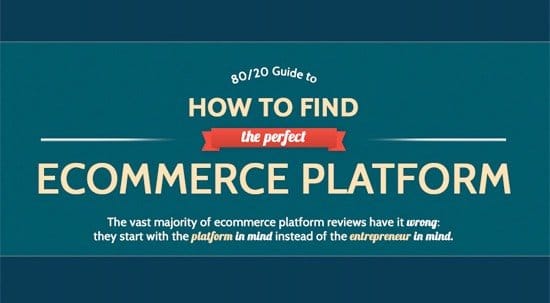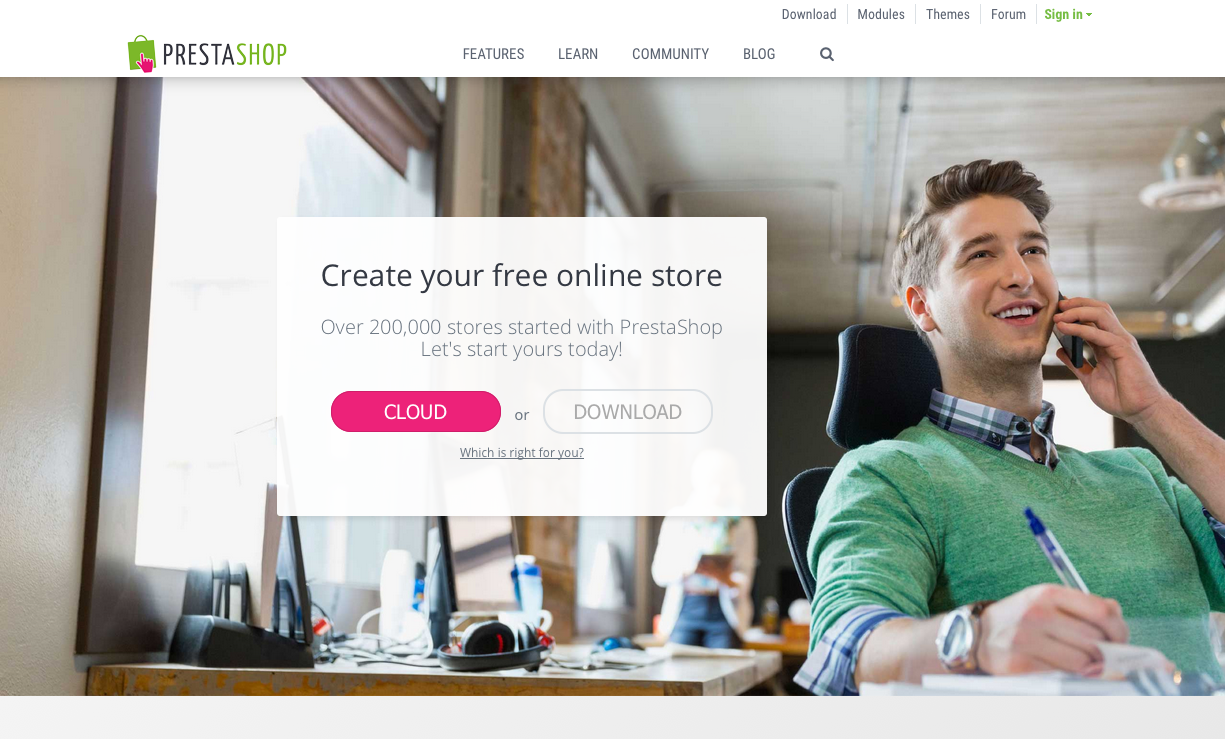What is The Best eCommerce CMS on The Market?

When you’re doing eCommerce, you want the best CMS you can get. One that has all the features you need, all the functionality you’ve come to expect, and all of the support that makes things happen when the worst comes to pass.
All of that is just flowery language for “something that works, works well, and doesn’t break.” CMS platforms, specifically those designed for eCommerce in mind, have certain sets of features. Some of them are hosted solutions, some of them have deep customization, some of them include a bunch of analytics beyond what you might get from installing your own Google Analytics, and so on.
Which one is best for you? I can’t tell you. If there was one “best” CMS out there, all the competition would be out of business. Different platforms work better for different businesses. What works for a small tech business might not work for an affiliate retailer. What works for that retailer won’t work for a larger company. With that in mind, here are a few of the best CMS platforms available for eCommerce today.
Shopify

Shopify is one of the best, particularly for small businesses looking for a quick and easy solution to tie into their free hosted WordPress blog and their Facebook Page. It’s a completely hosted platform, meaning you don’t have to worry about or pay for hosting, security, and all of the rest.
There are hundreds of themes to dig through, free and paid, to customize the look and feel of your shop. If you’re a bit tech savvy, or you have a coder on staff and a wireframe idea, you can customize it yourself. If you don’t have a blog, you can also host one through Shopify.
Shopify does all of the management work you need for a storefront as well. It tracks inventory and sales. It links with Google Analytics to track referrals and customer data. It completely locks down the shopping cart, so it’s as secure as anything can be online. It’s also SEO-friendly, easily allowing you to implement custom meta data for product pages, among other things.
Shopify pricing varies depending on the scale of the store you want and whether you’re setting it up for a POS in-store sales processor as well. After the 14-day free trial, you have three packages to pick through, each varying in terms of storage and fees. In particular, they include credit card processing fees.
Magento
The moment you opened this post, you probably expected to see Magento on the list. It’s up here for a reason; it’s huge and it’s popular. I don’t believe it’s one of the true best solutions out there, but that’s because it tries to do too much and has become bloated as a result. It’s a great one-size-fits-all solution for basically any business, but it’s best used for massive companies with thousands of products and millions of customers. It can, of course, be customized for much smaller businesses as well.
Magento is, in contrast to Shopify, self-hosted. You need to have your own hosting, and thus you need to be concerned with connection speed and server security, among other things.
One of the primary benefits of Magento is that it’s both free and open source. You can customize it as deeply as you want, and there’s no price on those customizations. The only caveat is that I’m just talking about the Community edition. The enterprise edition, made for global companies specifically, costs a whopping $15,500… at minimum. Annually.
Volusion
Volusion is a business in a box. You don’t need anything – less even than Shopify – to get started. In fact, not only is it a hosted solution, it also works as a tab app within Facebook. You don’t even need your own site, it just works via social media. What more could you want, as a small business?
Volusion is hosted with hundreds of themes to dig through, in much the same way as Shopify. They also do all of the product tracking you need for inventory and sales statistics. Plus, it does all the SEO work you’re expected to do on a stand-alone site, to make your Facebook-based shop or your hosted shop more visible.
Volusion is free for two weeks, before you choose one of their four plans based on the scale of your business. There are no additional credit card processing fees, like with Shopify, nor is it as expensive as Magento’s enterprise solution.
The primary draw for many business owners here is the analytics. Volusion is highly integrated with various analytics tracking schemes, including Facebook Insights and Google Analytics. You can see a lot of detailed information about your customers, all right out of the box.
PrestaShop
PrestaShop is a self-hosted solution like Magento, but that’s about where the similarities end. Real power comes from hosting it yourself. Templates, a store builder, a customizable shopping card system, mobile support, international language support; it’s all there.
One of the primary benefits of PrestaShop comes from the cloud version, which is hosted and installed automatically. You miss out on source code access and some customization options, but you make up for it by being able to set up and run a shop in literal minutes. Plus, both versions are free.
Honestly, the best thing about PrestaShop isn’t their platform, hosted or self-hosted. It’s the absolutely astonishing level of service and support. For a free CMS, it’s great that it’s all well supported by both the developers and the community. Their forums have over 700,000 members and are full of experts both on eCommerce and on PrestaShop itself. Plus, they have comprehensive training programs for all users, from complete newbies to industry veterans looking to use a new platform.
In the end, picking one of these solutions depends on what your business needs out of a CMS. Figure out which is most appealing based on features and price, then try it out. Worst case scenario, after a brief trial, you move on to the next.
 ContentPowered.com
ContentPowered.com







